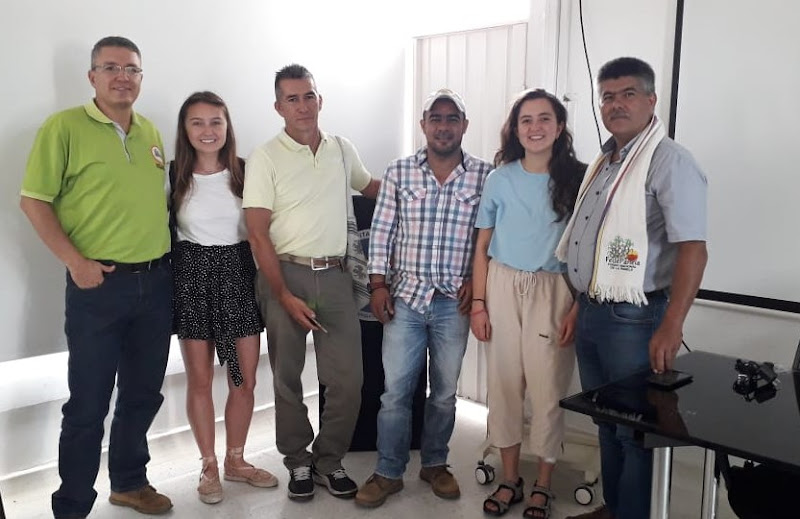Finance and Accounting Skills for Panela Producers in Colombia
In Colombia, Fedepanela is the national federation of panela producers.
Founded in 1939, it represents more than 276 panela associations that encompass
18,900 panela producers. They are currently focused on ensuring the sustainability
and modernization of the panela industry, but although they have provided their
producers with short and simple trainings, they do not have the resources to provide
them with in-depth capacity building.
In
recent years, panela cooperatives in Colombia have been transitioning
from traditional smallholder farmer associations to big- and medium-sized businesses.
Therefore, Fedepanela reached out to the Farmer-to-Farmer program to request a volunteer
to strengthen the financial management and planning capacity of several small associations,
in order to accelerate this transition.
Vivian Horvath was the volunteer chosen
for this assignment. Vivian has an undergraduate degree in Economics,
Administration and Finance from Bocconi University and several years of experience in finance
and investment banking. Before her assignment, she was working in London at Morgan Stanley, reviewing documents
and evaluating credit and loan risks. She traveled to Colombia in March 2020 to work
with small panela producers and examine their financial management strategies. She
made suggestions to change their organizational
and planning capacity in order to help them increase their business scope and management
capabilities.
During her assignment,
Vivian did research on the panela industry and current trends affecting it, and
met with Fedepanela staff in Bogotá for an overview of the different panela associations
and the different stages the organizations were currently in; in terms of the production,
marketing and sales process of panela. She then traveled to Mariquita and Palocabildo
to meet with representatives from different sugar cane organizations and to gather
data on their organizational and economic capacity. She visited production plants
and met with groups of farmers, to go through their costs in detail, and teach them
systematic ways of tracking these.
At the end of
her assignment, Vivian had inspired many panela producers to enact changes. When
she first met with them, farmers were reluctant to engage productively. However,
towards the end of the sessions, producers were taking things more seriously and
were happy to engage and provide information. Additionally, people were very grateful
to meet and for the help they were receiving. Vivian hopes that now that these farmers
have been put in touch with each other, they will stay connected and work together
more going forwards. They can discuss both their negative and positive market experiences
and share their best practices.
Although her trip was cut short due to COVID-19, Vivian was very pleased with her assignment: "I found this experience extremely useful. Even though I was providing basic finance and accounting skills, I feel like I learned just as much from the farmers about the raw sugar cane production and marketing process. The locals call this natural brown sugar ‘panela’; it is more nutrient-dense and less processed than the more widely commercialized, refined white sugar.
During my meetings with the panela producers, I realized that many of them are incredibly astute and business-oriented but do not have the education and tools necessary to stay organized. It was clear that there is a lot of variance in terms of accounting abilities and record-keeping between the different organizations, but it was impressive how accurate they all were in their cost estimates. I really appreciated the relationships I was able to form with many of the farmers I spoke to.”




.png)

Comments
Post a Comment